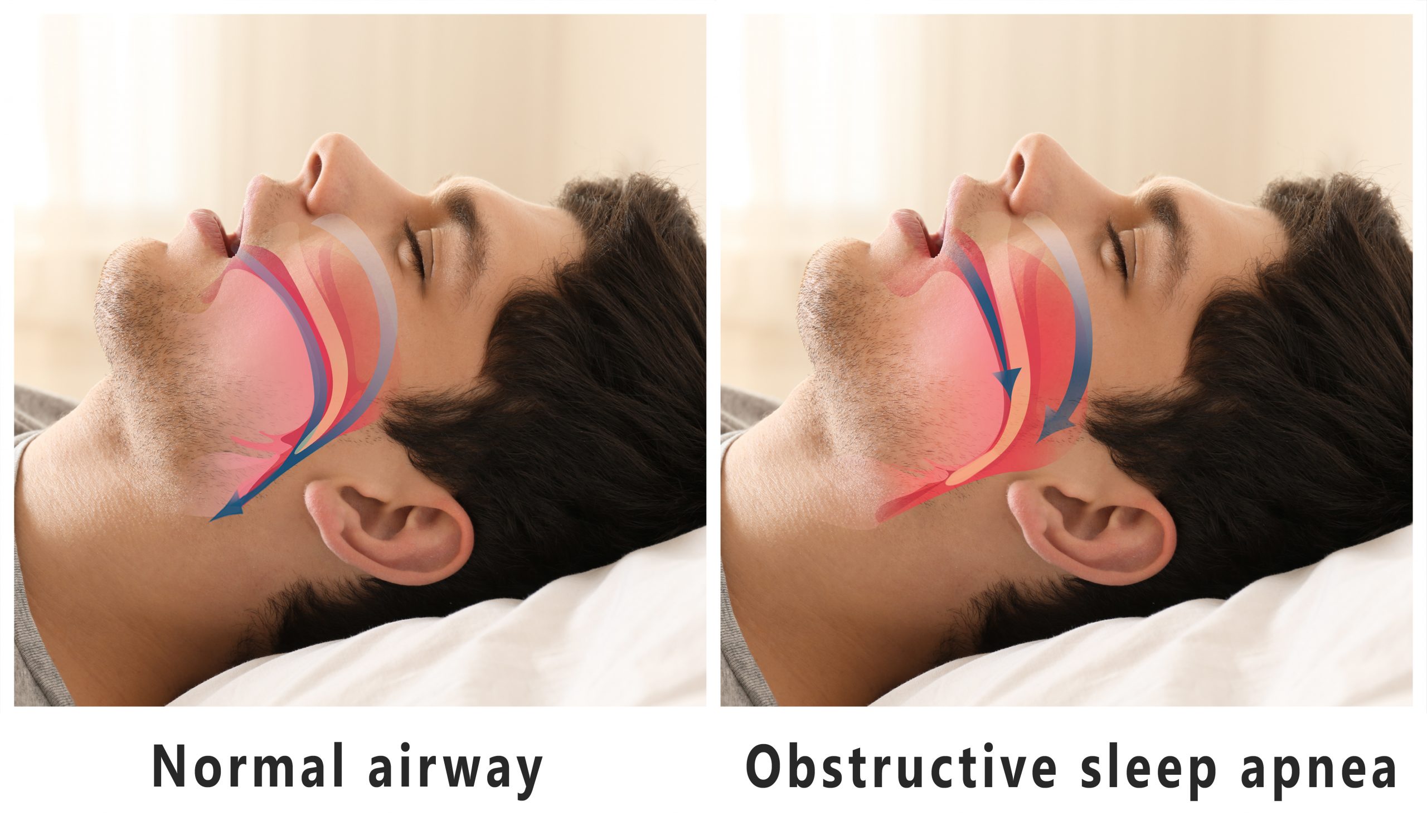Sleep apnea is a sleep disorder characterized by interruptions in breathing during sleep. While the immediate consequences of sleep apnea include daytime fatigue and disrupted sleep patterns, research has shown that there is a deeper connection between sleep apnea and brain health. In this article, we will explore the connection between sleep apnea and brain health.
- Oxygen Deprivation: Sleep apnea disrupts the normal breathing patterns during sleep, leading to periods of reduced oxygen intake. These episodes, known as apneas, can occur multiple times throughout the night, causing oxygen levels to drop. This oxygen deprivation affects brain function and can lead to various cognitive issues over time.
- Cognitive Impairment: The repetitive interruptions in breathing during sleep can have a significant impact on cognitive function. Studies have shown that individuals with untreated sleep apnea are at a higher risk of developing cognitive impairments such as memory problems, decreased attention span, and difficulty with concentration. The lack of restful sleep and reduced oxygen supply to the brain contribute to these cognitive deficits.
- Mood Disorders: Sleep apnea has been associated with an increased risk of mood disorders such as depression and anxiety. The fragmented sleep caused by apneas can lead to persistent fatigue, irritability, and mood swings. Additionally, the oxygen deprivation and changes in brain chemistry associated with sleep apnea can disrupt the balance of neurotransmitters involved in mood regulation.
- Increased Risk of Dementia: Research has suggested a link between sleep apnea and an increased risk of developing dementia, including Alzheimer’s disease. The chronic intermittent hypoxia and oxidative stress resulting from sleep apnea can contribute to the accumulation of amyloid plaques and tau tangles in the brain, which are hallmarks of Alzheimer’s disease. Additionally, the disruption of sleep patterns and cognitive impairments associated with sleep apnea can further exacerbate the risk of developing dementia.
- Structural Changes in the Brain: Imaging studies have revealed that sleep apnea can lead to structural changes in the brain. Specifically, the repeated drops in oxygen levels during apneas can cause damage to certain areas of the brain, including the hippocampus and frontal cortex, which are involved in memory and executive functions. These structural changes may contribute to the cognitive deficits observed in individuals with sleep apnea.
- Increased Risk of Stroke: Sleep apnea has been identified as a risk factor for stroke. The intermittent hypoxia and physiological stress caused by sleep apnea can lead to increased inflammation, elevated blood pressure, and impaired blood flow to the brain. These factors can contribute to the development of vascular issues, including stroke.
- Importance of Treatment: Recognizing the connection between sleep apnea and brain health highlights the importance of seeking appropriate treatment. Continuous positive airway pressure (CPAP) therapy is the most common and effective treatment for sleep apnea. By using a CPAP machine, individuals can maintain an open airway during sleep, ensuring proper oxygen intake and reducing the interruptions in breathing. This can help alleviate the cognitive impairments, mood disorders, and other brain-related issues associated with sleep apnea.
- Lifestyle Modifications: In addition to CPAP therapy, making certain lifestyle modifications can also benefit brain health in individuals with sleep apnea. These include maintaining a regular sleep schedule, practicing good sleep hygiene, avoiding alcohol and sedatives before bedtime, and engaging in regular physical exercise. These lifestyle changes can contribute to better sleep quality and overall brain health.
In conclusion, the connection between sleep apnea and brain health is evident through the various cognitive impairments, mood disorders, and increased risk of dementia associated with this sleep disorder. Treating sleep apnea with interventions such as CPAP therapy is essential to ensure adequate oxygen supply to the brain and minimize the long-term consequences on












